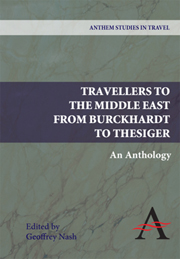Book contents
- Frontmatter
- Contents
- Acknowledgements
- Introduction
- PART ONE THE COMING OF EMPIRE 1800–1879
- PART TWO COLONIALISM AND RESISTANCE 1880–1950
- Ottoman and Former Ottoman Territories
- Arabia
- Persia/Iran
- 1 Persia and the Persian Question
- 2 A Year Amongst the Persians
- 3 Persian Letters
- 4 The Middle East Question
- 5 The Road to Oxiana
- 6 The Cruel Way
- Bibliography
1 - Persia and the Persian Question
from Persia/Iran
Published online by Cambridge University Press: 05 March 2012
- Frontmatter
- Contents
- Acknowledgements
- Introduction
- PART ONE THE COMING OF EMPIRE 1800–1879
- PART TWO COLONIALISM AND RESISTANCE 1880–1950
- Ottoman and Former Ottoman Territories
- Arabia
- Persia/Iran
- 1 Persia and the Persian Question
- 2 A Year Amongst the Persians
- 3 Persian Letters
- 4 The Middle East Question
- 5 The Road to Oxiana
- 6 The Cruel Way
- Bibliography
Summary
On the whole an undistinguished family, the Curzons of Keddleston Hall, an imposing eighteenth-century mansion in Derbyshire, traced their aristocratic lineage back to the Norman Conquest. George Curzon was however considered exceptional by his prep school headmaster and he lived up to his early promise at Eton and Balliol (though unaccountably he left Oxford without a first class degree). Already tipped for high office he made the tour of Greece and the Holy Land in 1883, then four years later, between 1887 and 1894, started a series of journeys, one round the world, and all taking in the East. Curzon had been from his schooldays an ardent imperialist and these travels had a political purpose. In 1891 he was briefly under-secretary at the India Office in Salisbury's short-lived government. At the same period the aspiring politician was busy writing letters to the Times about Britain's foreign policy in the East. There followed three books each mixing travel narration with observations on the political and strategic issues raised by the different areas through which the author had travelled. Both Russia in Central Asia (1889) and Persia and the Persian Question (1892) focus on the ‘Great Game’, or Britain and Russia's clash of interests in the East with the defence of India the core concern. Problems of the Far East (1894) surveyed Britain's possessions in the Far East and the growing threat of Japan.
- Type
- Chapter
- Information
- Travellers to the Middle EastAn Anthology, pp. 246 - 257Publisher: Anthem PressPrint publication year: 2009
- 2
- Cited by



